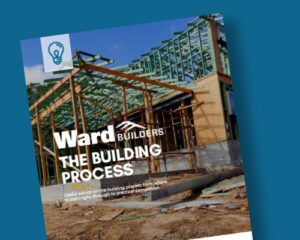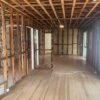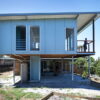Building Process Step 7. Building Contract
By this stage everything is falling into place, you have your budget, the working plans, engineering if required, applicable relaxations, and you’ve appointed the builder… now it’s time to sign the building contract.
If you’re doing domestic building work over $3,300, you’ll need a contract to bind the builder and yourself for the building project.
Once you have a signed, the builder will engage their preferred certifier and engineer (if required) to start your project. The certifier needs to apply for your building approvals with both your details and the nominated builders’ details.
HIA Building Contracts and Master Builders Contracts
There are 2 main contracts builders will use depending on which organisation they belong to. Ward Builders belongs to HIA and therefore use HIA Building contracts.
Building contracts are designed to protect both parties. They are standard building contracts and if you are unsure, you can seek legal advice to ensure that you are aware of your rights and obligations. The QLD government recommends that homeowners do seek independent legal advice before entering into a building contract. Like any contract, it should be reviewed and if needed, terms negotiated.
When you select an honest and reputable builder, there should never be any sneaky clauses. Reputation is everything and it’s in the builders’ best interest to be honest, upfront and for the project to run smoothly.
Check the specifications
To ensure everything on your brief is listed, all that is required by the engineer, architect or designer…thoroughly check the builders specifications. Check inclusions and exclusions listed. If you miss or forget about something, it’s likely to become a variation down the track. If you aren’t sure always ask the builder, you could ask your architect or designer to cast their eyes over the builders’ specifications.
How do building contract payments work?
Deposits
If the cost of your building contract is $20,000 or higher, the maximum deposit is 5% of the total contract price.
If the contract price is between $3,300 and $19,999, the maximum deposit will be 10% of the contract price. If more than 50% of the contract value is undertaken offsite (i.e. custom cabinetry in a kitchen renovation), the building contractor can ask for up to 20% deposit.
Progress payments
For all contracts priced $3,300 and above, the number and timing of progress payments is negotiated with the builder and they are relative the amount of work performed. Like the deposit, the Final Progress payment is also 5% of the project price and progress payments are split by stage (i.e. demolition, foundations, framing etc) up to the contract balance.
Insurance
One other thing to remember is your home insurance. The builder has insurance to cover the build however if you’re extending, altering or renovating your existing home, call your home insurer and discuss what your building plans to find out if this will create any gaps in your home insurance.
So there you have it. When you need a building contract, what to do and what to expect.










